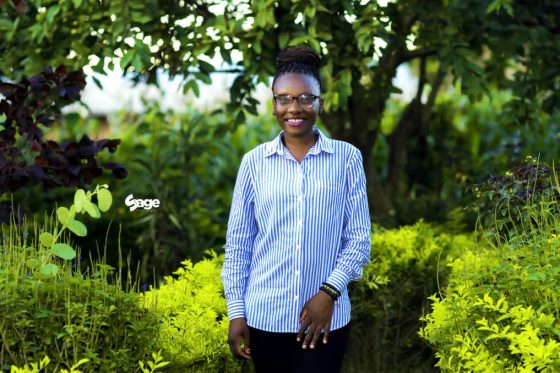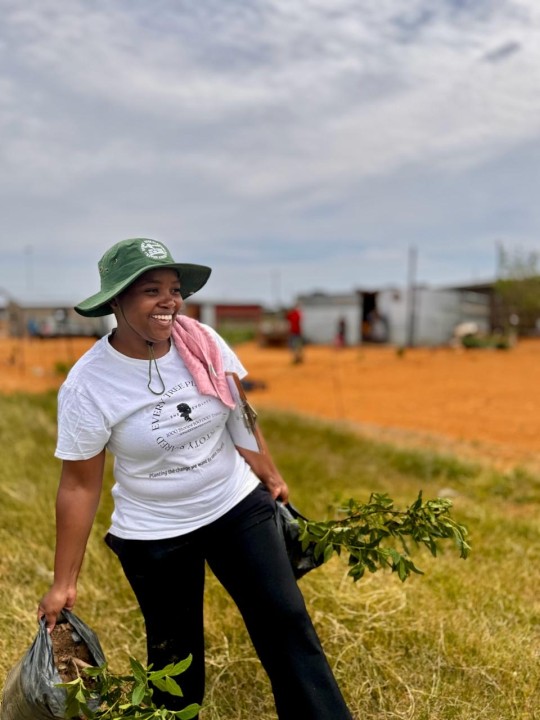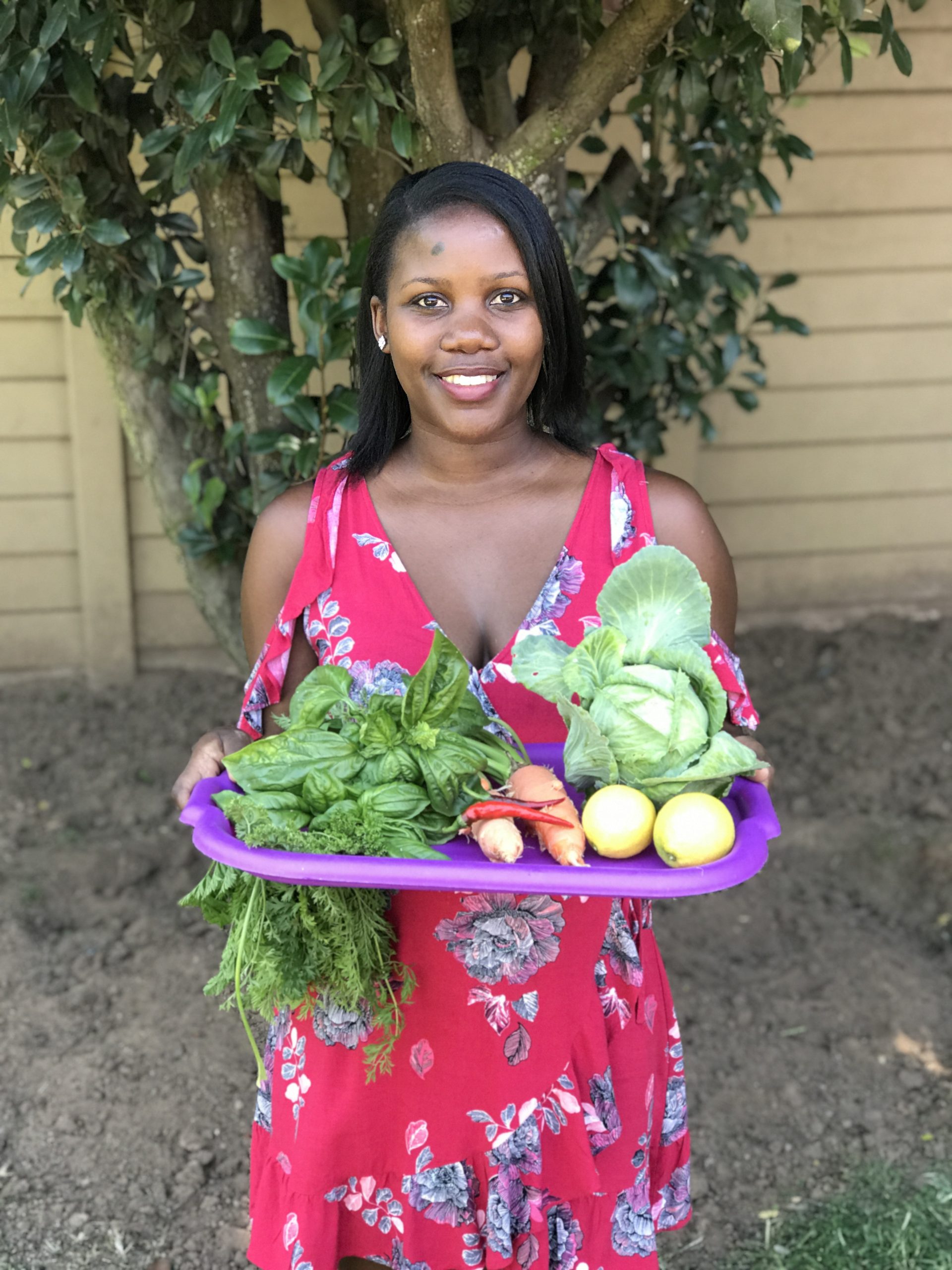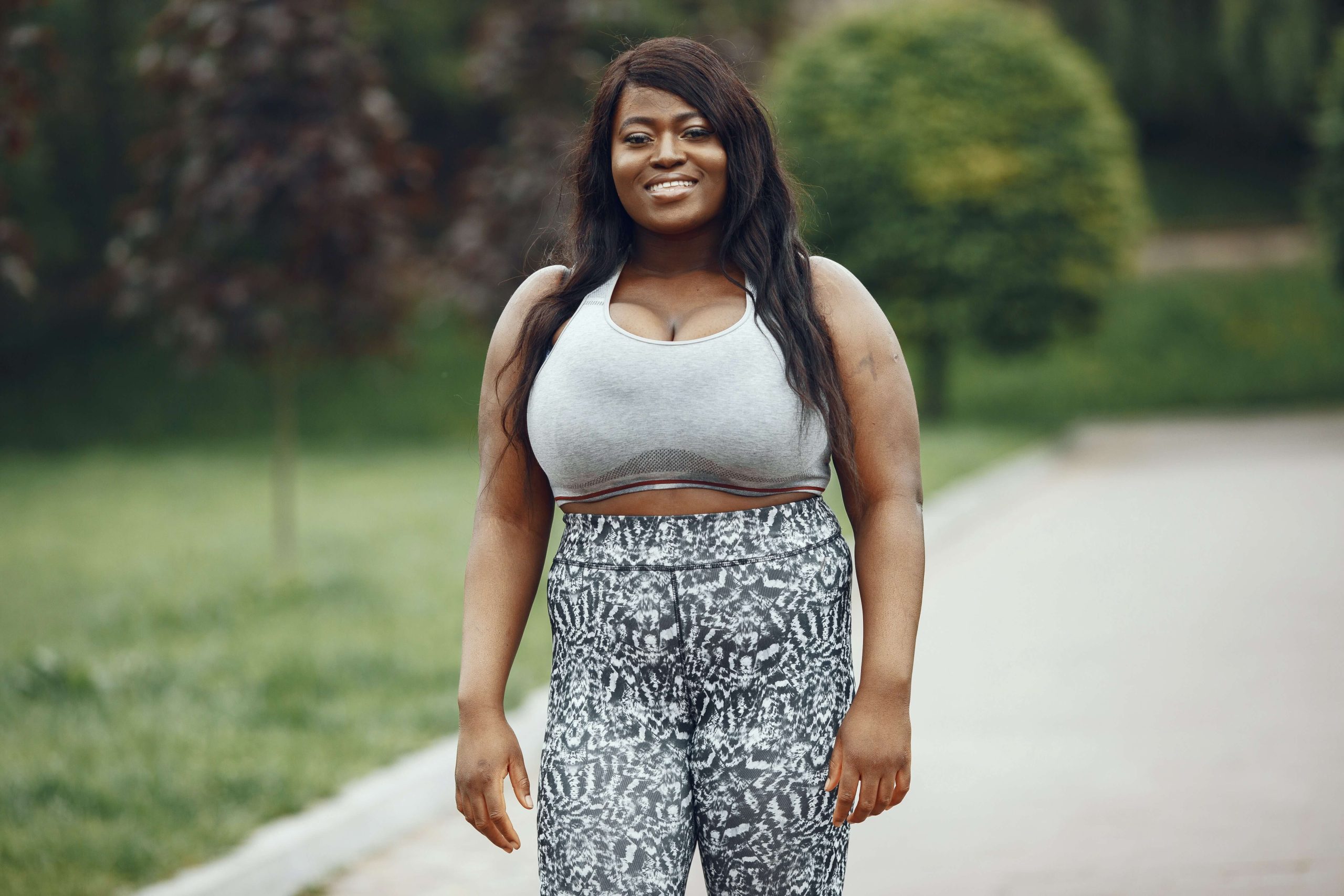Cathrine's deep connection to Malawi is so inspiring
Meet Cathrine, a young Malawian woman who was born and raised in Zimbabwe. Despite growing up far away from her ancestral land, Cathrine was always drawn to Malawi and its beautiful landscapes. As a child, she dreamt of one day visiting her parent's homeland, and when she finally did, it was love at first sight. She was captivated by the lush greenery, cultivated fields, the rolling green hills, and the friendly, welcoming people of traditional rural African villages. 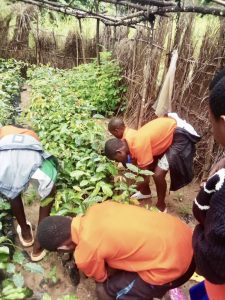
Cathrine's connection to Malawi deepened over time, even as she faced various social and financial challenges that forced her to leave her country. She never forgot the warmth and kindness of the people she had met there, and she remained committed to helping them in any way she could. 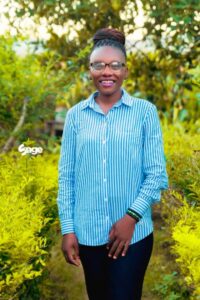
In 2021, Cathrine finally returned to Malawi to settle in her parents' village of Tukombo, located in the Northern region where the Tonga-speaking people reside. She was eager to reconnect with her roots and to make a positive impact on her community. She reached out to the Traditional Authority (TA) of the village's land to understand the most pressing needs in the area, and she was determined to find a way to help, even though she had no resources of her own.
Cathrine's unwavering dedication to her community inspired her to seek out like-minded friends who shared her vision of creating a better Africa for present and future generations. Together, they embarked on a journey of asking for assistance, and Cathrine was humbled by the overwhelming response from her friends, who were eager to help her build her village and work towards creating a better Africa, one village at a time. Despite having limited resources, Cathrine was able to make a significant impact on the lives of those in need in her village by providing assistance and support whenever needed. 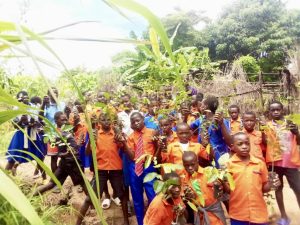
Cathrine's passion for the environment led her to get involved in a tree-planting project in her community of Tukombo. She collaborated with Chifundo from the DFFE, and together, they planted trees in a school and an elderly home. Cathrine had to seek permission from the Chief, Zilakoma - Mr Wellington, to run the project on their land, and he was eager to assist Cathrine in carrying out her vision to transform the landscapes while preserving the cultures and traditions that her ancestors had worked so hard to build. Her approach to the tree-planting project was unique and inspiring. She not only taught pupils how to plant trees but also explained why it was important and how to care for them. She encouraged each student to plant trees with a purpose and to name each tree they planted so they could nurture and protect it as a living treasure. Cathrine's dedication to planting trees and helping those in need is truly admirable. Her efforts have given hope for the future of our planet and the natural world. Her story is a testament to the fact that one person can make a significant difference in their community with determination and a clear vision.
Kedibone’s Ongoing Journey With She Evolves
Kedibone Mahlatsi is a remarkable young woman and a mother of three children who lives in Hoopstad, a small town in the Free State province of South Africa. Amongst many other things she does, she is a passionate advocate for tree planting and storytelling and is already making a practical positive impact in her community. Her journey is inspiring and speaks to her resilience, compassion, and steadfast commitment to making a difference. In this piece, we will delve into Kedibone’s inspiring efforts and the profound impact she’s making, specifically through the “1000 Stories, 100,000 Trees” initiative.
 Growing up in Hoopstad, Kedibone witnessed the challenges of poverty, chaos and injustice, but nothing stopped her from becoming the remarkable person we know today. Her love for planting was inspired by her grandmother, who had a green thumb and taught Kedibone about the importance of nurturing plants and trees. As she grew older, Kedibone recognised the significance of tree planting in addressing environmental issues in her community, which prompted her to venture into organic farming, gardening, and tree planting.
Growing up in Hoopstad, Kedibone witnessed the challenges of poverty, chaos and injustice, but nothing stopped her from becoming the remarkable person we know today. Her love for planting was inspired by her grandmother, who had a green thumb and taught Kedibone about the importance of nurturing plants and trees. As she grew older, Kedibone recognised the significance of tree planting in addressing environmental issues in her community, which prompted her to venture into organic farming, gardening, and tree planting.
 Between 2015 and 2021, she worked at Senwes, a leading agricultural company in South Africa. During her time there, Kedibone equipped herself with knowledge of organic farming and helped to promote sustainable farming practices. However, her commitment to community development extended beyond the workplace. At some point recently, she offered a helping hand to the Blessing Disabled Home, a local organisation that provides care for people with disabilities, demonstrating her dedication to helping those in need. Not only that, Kedibone has also been of greater assistance in one of the children’s creche/preschools by donating a few needed resources for the kids to benefit from. Her involvement in community projects, such as raising donations for essentials, showcased her as a true changemaker in her community.
Between 2015 and 2021, she worked at Senwes, a leading agricultural company in South Africa. During her time there, Kedibone equipped herself with knowledge of organic farming and helped to promote sustainable farming practices. However, her commitment to community development extended beyond the workplace. At some point recently, she offered a helping hand to the Blessing Disabled Home, a local organisation that provides care for people with disabilities, demonstrating her dedication to helping those in need. Not only that, Kedibone has also been of greater assistance in one of the children’s creche/preschools by donating a few needed resources for the kids to benefit from. Her involvement in community projects, such as raising donations for essentials, showcased her as a true changemaker in her community.

Kedibone has gone through a tough and personal journey that has been marked by tragedy, loss, and lots more challenges. She grew up in a challenging family background and, as a result, faced many losses in a short period of time, including the death of her mother, sister, uncle, and grandmother. She also experienced harassment from an early age through her early adulthood, which added to her already long list of obstacles. Despite these setbacks, Kedibone’s dedication shines through, symbolised by her determination to bring about change in her community wherever possible.
On the 1st and 2nd of Feb 2024, Kedibone led the She Evolves tree planting and storytelling project, called 1000Stories, 100, 000 Trees, in a nearby community called Riverside, Hoopstad, which exemplifies her commitment to creating positive change regardless of circumstances. Leading the charge, she, along with local greening partner Clement, planted an impressive 192 trees in the community – within two days. Just reflecting on the moment, I have a goosebumps rush. The project not only transforms landscapes but also nurtures social cohesion and strengthens community bonds.
 Kedibone’s journey is symbolised by a plant she aptly named “Hope” from one of her home’s garden plants. This tangible reminder of transformation reflects her personal evolution and the optimism that emerged from challenging circumstances. It also represents the hope that Kedibone is planting in her community, inspiring others to believe in positive change – and to do the same.
Kedibone’s journey is symbolised by a plant she aptly named “Hope” from one of her home’s garden plants. This tangible reminder of transformation reflects her personal evolution and the optimism that emerged from challenging circumstances. It also represents the hope that Kedibone is planting in her community, inspiring others to believe in positive change – and to do the same.

Kedibone Mahlatse’s journey from adversity to resilience is a sign of hope for her community and beyond. Her dedication to community development, environmental sustainability, and personal growth make her a true heroine deserving of recognition on a global scale. Through “1000 Stories, 100,000 Trees,” Kedibone is leaving an enduring legacy/mark that will continue to blossom for years to come. Her efforts remind us that even in the face of hardships, we can plant seeds of change that will grow into a brighter future.
A HOUSE IS NOT A HOME WITHOUT A GARDEN
My name is Noma, and I am a self-made home gardener. My goal is to inspire as many people as possible to start their own home gardens so that they can eat and live healthier lives.
When I first started gardening, I never imagined how big of a role it would play in my life. Gardening positively changed my physical, mental, and emotional well-being. Before embarking on my gardening journey, I used to worship junk food! Meals containing greasy, spicy and filling foods were my go-to meals. Soon enough, Irritable bowel syndrome (IBS) caught up with me when the doctor asked – do you eat vegetables?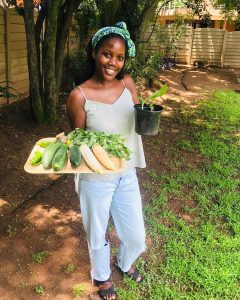
The truth was, I only ate vegetables when I had to. In fact, even if I bought vegetables, they would stay in the fridge until they would go bad, which gave me the perfect excuse to throw them away. At this point, I knew something had to change, and I knew that I had to make that change.
And so, my gardening journey began five years ago when hubby and I moved into our first house and decided that a house is not a home without a garden. This way of thinking was also the best way for me to eat more veggies because once you’ve laboured to grow your own veggies, it just hurts too much to see them go to waste.
The first two years of gardening were a joke because we both grew up with parents who loved gardening. However, we had zero gardening experience and didn’t know where to start. But we had to start somewhere. So, we sliced a store-bought tomato and put it in the ground, along with a few sweet potatoes. The tomatoes sprouted up surprisingly fast, and soon enough, we harvested a handful of happiness. But the sweet potatoes, on the other hand, didn’t give us much when we pulled out the plants. So then, hubby and I decided to put gardening on hold to focus on having our baby boys.
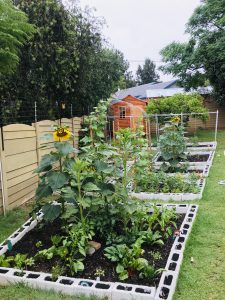 In 2019 I was done with the babies and ready to go back into gardening. But because we neglected our garden for so long, it was covered in grass. We then decided to dig it all out and start the garden all over again. As soon as we started digging, we were greeted with a pleasant surprise of sweet potatoes! Lots and lots of them! For me, this was an undeniable sign that I was meant to use this space for gardening. And that’s how @GardentoPot was born. First on Instagram, and now, we are blowing up on TikTok. As I’m learning to grow, I’m also learning to cook healthier, and that’s the type of content I share on my social media platforms. My boys are also learning to love the garden, from sowing seeds to harvesting and eating carrots.
In 2019 I was done with the babies and ready to go back into gardening. But because we neglected our garden for so long, it was covered in grass. We then decided to dig it all out and start the garden all over again. As soon as we started digging, we were greeted with a pleasant surprise of sweet potatoes! Lots and lots of them! For me, this was an undeniable sign that I was meant to use this space for gardening. And that’s how @GardentoPot was born. First on Instagram, and now, we are blowing up on TikTok. As I’m learning to grow, I’m also learning to cook healthier, and that’s the type of content I share on my social media platforms. My boys are also learning to love the garden, from sowing seeds to harvesting and eating carrots. 
I am truly humbled and honoured by how everyone has received my content. Now I see that there is a real need for people to be able to grow their own nutritious food with no harmful chemicals. Today my garden is my therapy, it teaches me about how life & nature work together. My garden is also my purpose, it helps me inspire others to garden and to take control of their nutrition.
When climate change impacts African women, it also affects me as an African woman
My name is Ms Rosemary Olive Mbone Enie. I am a Cameroonian Geologist, Environmentalist, Social Environmental Entrepreneur (SEE), Eco-communities Builder, Gender and Childhood Ambassador. I was born on the 27th August 1966 in Victoria South West Region of Cameroon.
Victoria, now called Limbe, is a seaside town by the banks of the Atlantic Ocean. While growing up, we had several clean flowing rivers, which took its source of the ranges of the majestic Mount Cameroon through the rocky volcanic terrain into the Atlantic Ocean. Back in the youthful days' rainfall was stable, farmers had specific reasons to plant their crops, and the yields were moderate. The town of Victoria (Limbe) was full of trees and plantations of Oil Palm owned by the Cameroon Development Corporation (CDC) and other local farmers. The city's average temperature was moderate, and Victoria was a liveable city with an average population size.
For the past 50 years, there has been a rapid change in the development of the city of Limbe. The population has grown so fast, hitting over 500,000 inhabitants. They felled many trees to build houses. The city's average temperature has become very hot, especially in the long dry season. Rainfall is very erratic, which sometimes extends to October and November. Many rivers and streams dry out during the rainy season giving rise to water shortages within the communities. Farmers have resorted to using chemical fertilizers to improve their yields, which harms the community's health. Like many African countries, Cameroon faces the challenge of Water Security, food security, loss of biodiversity, etc. My country is already facing consequences of climate change, including an abnormal recurrence of extreme weather phenomena such as violent winds, high temperatures and heavy rainfall, which endanger communities' ecosystems and the services they provide.
For the past 30 years, I have been taking practical actions to address Water, Sanitation, Hygiene, Environmental Education and Management activity across Africa. As a result, I had the opportunity to work with women and youth groups in Cameroon, Nigeria, Ghana, Liberia, Tanzania, Kenya and Rwanda. I kick-started several Pan African initiatives to address environmental and climate change challenges in Africa. I received a scholarship to study Ecovillage Design Education at UNESCO in Germany. It led me to initiate the Pan African Eco-communities Network (PEN) Initiative to transition 55,000 traditional African villages into Ecovillages. In addition, I started the Tunza Afrika Program (TAP) in 2015, which continues to engage, promote and support the interest of young people in water, environment, energy, food, science and technology issues within the formal non-formal educational sectors across Africa.
Climate change poses a unique and general challenge within Africa and at the global level. It concerns everyone on planet Earth. The people likely to suffer most from the impacts of climate change are the Most Vulnerable Groups (MVGs), those least responsible for causing it. It is widely recognized that developing countries are expected to suffer more from the devastating effect of climate change. For example, the African continent is responsible for 3.8 per cent of global CO2 emissions, yet the impact of climate change will be unfairly devastating.
For over 25 years, I have been working in the Gender and Development Sector and 21 years following the International Climate Change Negotiation. Women are particularly affected by the dramatic changes in climate patterns. Women living in poverty are the most threatened by the dangers that stem from global warming. For example, in 1991, when a cyclone and flood severely affected Bangladesh, the death rate was almost five times as high for women as for men. This was also obvious during the Tsunami that hit South-East Asia in 2006, where most victims were women.
Due to the existing gender inequalities, the different roles in society and the division of labour, women and men are not equally exposed to climate change impacts. They do not have the same adaptive capacities. We must acknowledge these differences in vulnerability and adaptive opportunities to ensure the success of adaptation measures. Furthermore, if we consider the gender perspective in communities across Africa, we will avoid further gender inequality.
A gender perspective is often overlooked in debates about climate change across Africa; it is high time to change this with COP 27 in Cairo, Egypt!
Gender analysis is crucial to understand better the impacts of climate change on human communities, particularly food security, access to natural resources, such as water, firewood, and health. Simply because women are often primarily responsible within the family for these tasks. In African countries, the women fetch and carry water at great distances to meet the needs of their village communities. They labour every day, without pay, to grow enough food for their families and communities.
Women can be real agents for change in their homes, their communities, and society as a whole in the continent of Africa. They can take over new renewable forms of household energy, such as biomass, biogas, solar. They can tackle climate change as consumers, as an educator. Their specific role in educating their children can promote behavioural change in human or economic, cultural, social and environmental activities.
When climate change impacts African women, it also affects me as an African woman!
Mpho Mogodiri is Celebrating our Indigenous Heritage
We really need to reconnect with our roots to nature and listen to the elders around the world. I call them living libraries because they actually know most of the things that we don’t know. They have this knowledge, but they don’t know who to share this knowledge with. It’s because we are not asking them about these things. It’s something that I’m trying to spark with my business. To say, ask your grandmother about this, ask your grandfather about this, ask your elder about this and let there be a bit of information sharing. My grandmother would share her stories around fruits. For example, the wild sour plum. Those are the things she would talk about. I feel that knowledge like hers should be preserved somehow. 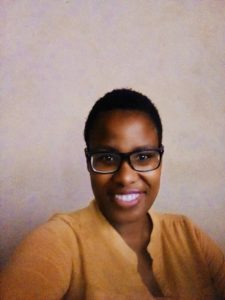
People don’t go into the wild as much as they used to. There’s a lot of activities to do now. There’s a TV in every home. There’s PlayStations, there’s Twitter, Facebook and so on. For us, when we wanted to play, we would go foraging and people are no longer interested in foraging. And if people are not interested in something, it loses its value.
I got introduced to foraging by my grandmother. I grew up in the Northwest, in a village called Seolong. We would go foraging with my grandmother and also with friends. It was actually fun to do it. I think it was a great, formative period. It’s a part of who I am. It’s a part of my identity and culture. I believe right now we are losing this knowledge which forms a great part of who we are.
The impact that starting my business had on me is that I really had to connect with my childhood again. Not only that but it’s also taught me that challenges in life are seasonal like the items we would forage. I appreciate nature more. I get to impact other people’s lives because when I go foraging, now, I go with a group of young people. They teach me about these fruits because some of them have been doing this their whole lives. Now they are paid for that knowledge and skill and they get to be paid through me. I get to put food on somebody’s table. It has impacted me that I’m doing good. I’m sharing my gift with other people. I’ve learnt to really listen to the ingredients and just go with the flow. It has shown me a different Mpho. 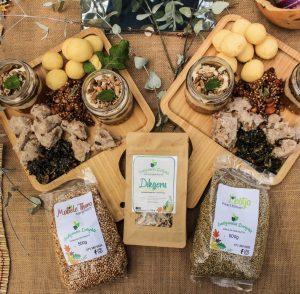
At Indigenous Delights, we produce luxury food, such as jams and chutneys, made out of indigenous, raw products. We exclusively source our raw material from women and youth in the villages in the Limpopo province. We do this to ensure that we provide a way of earning income for women and youth, and also to ensure that the materials we get are indigenous to that area and are collected sustainably.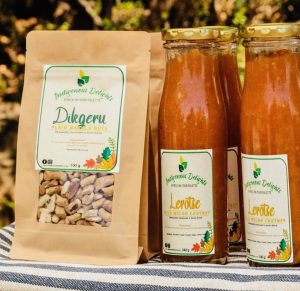
I wanted to make something that I grew up loving, indigenous delights, into modern food. There’s a certain stigma that comes with some indigenous fruits that I grew up eating. I ate that a lot when I was young because we had nothing else to eat. So, some of the foods are seen as poverty foods. We’re trying to break through that stigma.
Evolving to me means growth. It means pushing boundaries. Knowing that fear is there, but saying to the fear, 'I acknowledge you, fear, but I'm not gonna let you paralyze me'. Evolving means chasing your dreams the only way you know how. Evolving is also growth in terms of knowing yourself and making things happen for yourself and for those that are around you. It’s about opening the door for those who come after you.

